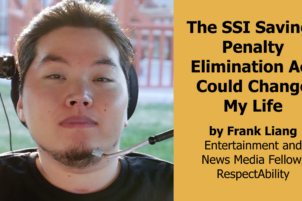 “Nothing about us without us.”
“Nothing about us without us.”
This iconic disability phrase takes on new significance in terms of health research, as the NIH recently designated people with disabilities as a population with health disparities.
Although this may sound like a disappointing development, this designation enables healthcare researchers to address the difficulties many people with disabilities face in receiving timely and comprehensive healthcare. It allows medical researchers to include disabled people as a subgroup within larger research studies. This allows researchers to understand the unintended effects a medication, procedure, treatment, or policy may have on people with disabilities specifically. It will also hopefully create a space for people to self-advocate for inclusion in trials and treatments from which they are currently excluded.
Demographics that are already a part of health disparity research include gender, ethnicity, sexual orientation and economic status. Adding people with disabilities to this list of studied populations allows for researchers to determine when policies and equipment that may work for the population at large have disparate impacts on our community.
One example of this is in Alzheimer’s disease research. People who have Down syndrome are able to contribute to these studies because having an extra 21st chromosome enables more production of amyloid precursor protein, which in previous research has been linked to Alzheimer’s. According to the Global Down Syndrome Foundation, not only will 70% of people who have Down syndrome develop Alzheimer’s, they will also likely develop it in their 40s and 50s, much earlier than people who don’t have Down syndrome.
According to Reuters, individuals with Down syndrome have expressed their desire to participate in clinical trials aimed at preventing or slowing the effects of Alzheimer’s disease. However, there has been resistance to allowing them to participate due to concerns about the drug being untested in this population and how the study may affect them. It is important for individuals with Down syndrome to have access to treatments that could benefit them, and clinical trials are necessary for testing the efficacy of new treatments.
Designating people with disabilities as a health disparity population powerfully addresses self-defeating logic that says people with disabilities cannot be a part of clinical trials because their health outcomes are unknown, by creating a mandated space for their health outcomes to be studied.







